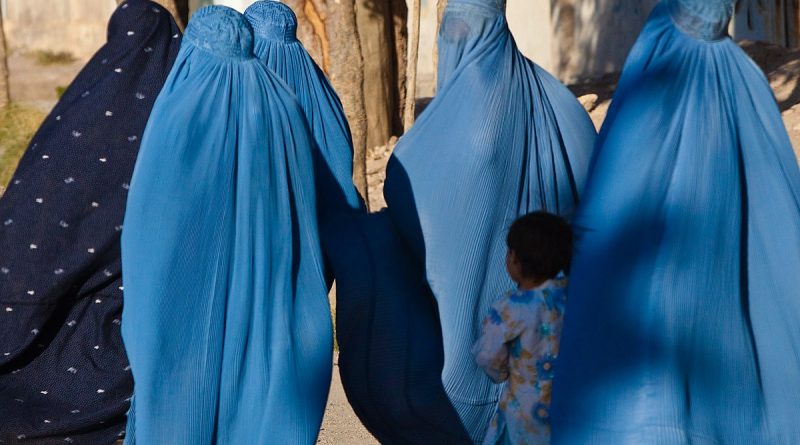The Taliban: A Suffocating Nightmare for Unmarried Women
Pranali Jain
Staff Writer
It has only been a year and a half since the Taliban took over Afghanistan. But for the Afghan women living in this nightmare, 18 months becomes an eternity.
The Taliban’s control of Afghanistan has been detrimental to most Afghans. Radio Free Europe states millions of families have been struggling to survive in a crashing economy in what was already one of the world’s poorest countries. The absence of a proper meal and electricity in tandem with the harsh cold and drought has made an already disastrous situation worse, BBC News writes. According to Human Rights Watch, the Taliban has also stopped public welfare programs, pensions, and other humanitarian support for the citizens. This is partly due to a lack of funds after Western countries sanctioned Afghanistan’s central bank reserves, which prevents money from circulating in the country. Afghans have been forced to resort to desperate survival measures, going as far as selling their kidneys or their children, particularly daughters, to buy a meal for their families, Radio Free Europe says.
The consequences, though, are significantly worse for women. When the Taliban took over Afghanistan in August 2021, they promised to respect women’s rights. However, according to The Associated Press, that promise was short-lived, as women and girls were banned from obtaining secondary education within a month of the Taliban’s takeover.
Moreover, since May 2022, the Taliban has been slowly yet steadily suffocating women through heavy restrictions on various aspects of women’s lives, from education and employment to social interaction and leisure. BBC News reports that between May and November 2022, women were required to wear a burqa and a niqab in public places, allowed to travel only with a male companion, and banned from universities and educational institutions past the sixth grade as well as parks, gyms, and places of employment. These bans have become prison sentences for the 14 million women and girls in the country, HRW reports.
RFE states that economic sanctions imposed on Afghanistan’s government had already proved to be a significant obstacle to getting foreign aid inside the country. To make matters worse, the ban on women’s employment paralyzed the only source of support the Afghans had under Taliban control – humanitarian aid from nongovernmental organizations.
Al Jazeera explains that female aid workers play a crucial role in serving women in these conservative communities, especially when it comes to recognizing their needs. With millions already suffering, the prohibition on women serving as aid workers meant that the Cooperative for Assistance and Relief Everywhere (CARE), the International Rescue Committee, and other nongovernmental organizations were forced to halt operations. Though women are able to work in a limited capacity in healthcare, NGOs pulling out has had an especially devastating impact on the most vulnerable Afghans – widowed and single women.
While 95 percent of all Afghan citizens suffer from hunger, according to RFE, 100 percent of female-led households struggle with access to food. With a ban on women’s employment, education, and mobility, widows and single women suffer the most as they do not possess the only key to some sort of relief in the Taliban’s Afghanistan — a male relative.
According to The Conversation, single women and widows have no source of income. Before the Taliban took over, women who did not have a university education worked in the informal employment sector; they could pursue babysitting, farming, or cleaning houses, for example. However, with the current ban coupled with high inflation, widowed and single women have no avenue for survival. RFE highlights that women-led households are only able to consume, if they are lucky, a fraction of the food they used to before the Taliban came into power.
NGO-sponsored food distribution centers are crowded by men, posing another barrier for women-only households to receive food, RFE notes. The Norwegian Refugee Council further noted that some women would send their male children to beg so they could buy bread for the day. But the Taliban has banned begging as well, closing the only door single women and widows had to access food and other necessities.
The walls are closing in on unmarried women, and the probability of survival for Afghans, especially those in women-led households, is diminishing with each new restriction put forth by the Taliban. The international community widely recognizes the dystopian reality of the 38 million people in Afghanistan. Efforts are underway to implement training programs and development assistance so Afghans can sustain themselves instead of relying on food imports and foreign aid.
Nevertheless, tomorrow every Afghan citizen will wake up to another day of suffering under the Taliban. As for widowed and single women, this unpredictable nightmare seems to have no end in sight.
Image courtesy of Arnesen, Wikimedia Commons


